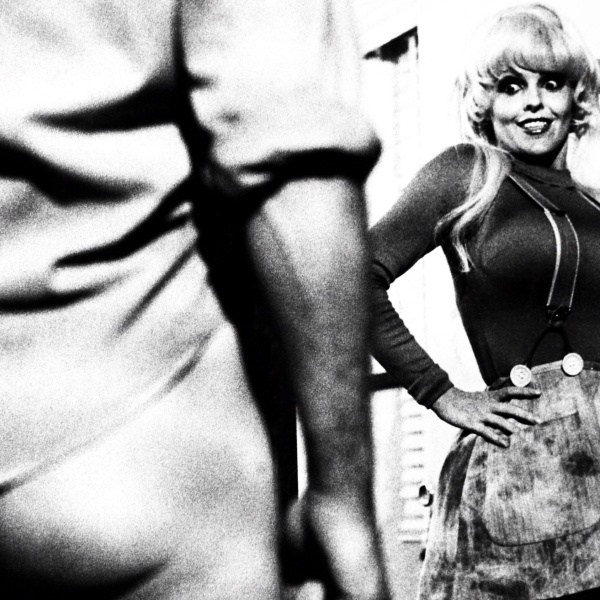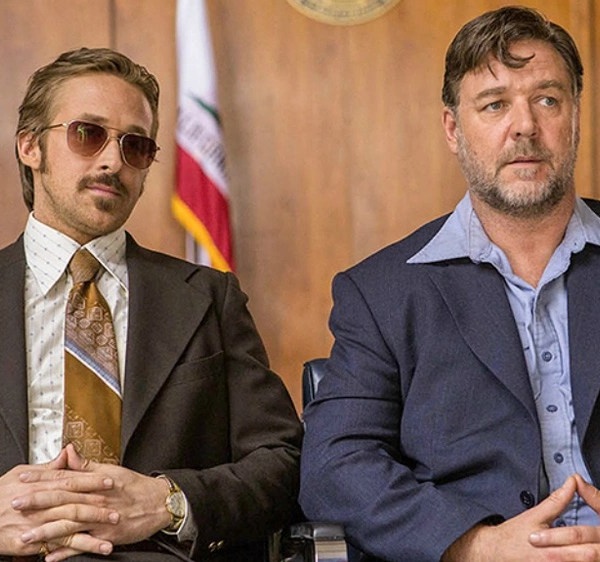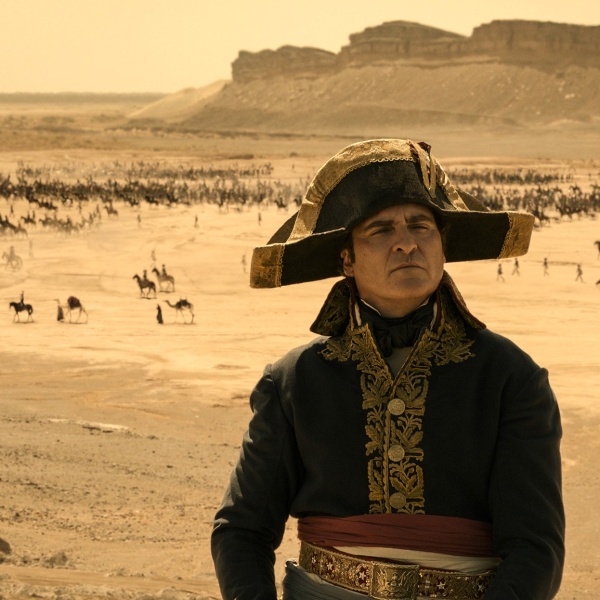
Now here’s an interesting piece of trivia: for the second year in a row, a first-time feature has topped our best films of the year list (in this case, Celine Song’s “Past Lives,” last year, it was Charlotte Wells’ “Aftersun”). That makes our cheeky little kick-off line — “just how good were this year’s debut features? One of them has already been crowned our best film of the year, and it’s got plenty of company” — both easily repeatable (copy, paste, done) and simply true.
But, more than that, it proves an adage we’ve been touting for years: the art of cinema is alive and thriving. There are always good movies. There are always good directors. And there are always rising stars worthy of attention. This year is no different. Last year wasn’t either. And we’re feeling pretty good about 2024.
Among the best first features of 2023: festival favorites, awards contenders (and, in the case of “American Fiction,” “A Thousand and One,” and “Blue Jean,” already certified award winners), genre offerings, personal histories, and at least one film that hinges on the best fake K-pop band you’ve ever seen. The films included here could easily stand as a best-of list of the year, full stop, no superlatives necessary, and we hope that you enjoy them in that spirit.
Christian Blauvelt and Ryan Lattanzio also contributed to this article.
-
“A Thousand and One” (dir. A.V. Rockwell)

Image Credit: Focus Features There are two particularly bruising lines that bookend first-time feature director A.V. Rockwell’s “A Thousand and One,” a vivid portrait of Harlem life from the early 1990s to the mid-2000s. “There’s more to life than fucked-up beginnings,” Inez, a woman living life in New York on her own terms and brilliantly played by R&B super-artist/actress Teyana Taylor, tells her young son Terry (Aaron Kingsley Adetola). She has kidnapped him out of the foster care system, which has kept them separated in the aftermath of her stint at Rikers Island beginning in 1993, and now hopes to give him a better life. But at the end of the movie, after a decades-spanning, bittersweet bond forms and fizzles between them and shattering revelations are had, she tells the older Terry (Josiah Cross), “I fucked up. Life goes on. So what?”
Piercingly specific in its details, Terry and Inez’s story nevertheless serves as a heart-wrenching microcosm for the greater struggles of Black New Yorkers trying to survive in the face of a rapidly gentrifying city and its police department’s deadly indifference to Black people. “A Thousand and One” culminates in a gutting conclusion that turns the movie upside down and serves as a sobering reminder of how fucked-up beginnings can hopefully bring about better endings. Taylor anchors Rockwell’s deft direction and ambitiously time-spanning screenplay with her powerhouse turn; tapping into her own hardscrabble backstory as a born-and-raised New Yorker, as well as her palpable kinship with her director, Taylor delivers a performance as fiercely committed to her character as Inez is to Terry — it’s a turn that reflects a massive amount of talent on both sides of the camera. —RL
-
“All Dirt Roads Taste of Salt” (dir. Raven Jackson)

Image Credit: A24 Watching “All Dirt Roads Taste of Salt” is like dropping into other people’s lives and walking beside them for a spell. Emphasis on “spell,” because first-time feature director Raven Jackson — whose previous shorts “Nettles” and “A Guide to Breathing Underwater” are on the Criterion Channel — certainly casts one. Depicting moments from the lives of several generations of Black women in Mississippi, Jackson feels on the verge of a new cinematic grammar, perhaps because she’s also a poet and knows how to slice down to the essence of things.
It’s the small moments that stand out from her singular feature debut: A little girl touching a grown-up’s painted toes, the stillness of sitting in a tree, fingers rubbed against the scales of a catfish. These feel like core memories shared with us, summoning up sensations of touch and smell from our own lives like a loud bang of thunder over a pond that still rings in our years even ages later. This is one of the great sensory experiences of the year, existing somewhere between the work of Apichatpong Weerasethakul and latter-day Terrence Malick (Jackson was inspired by the way Malick and DP Emmanuel Lubezki worked together on “The Tree of Life” and sought a similar collaboration with her cinematographer, Jomo Fray). But the quietest moments here linger with the greatest resonance, all of them formed in the liminal space where inner life meets the world. —CB
-
“Blue Jean” (dir. Georgia Oakley)

Image Credit: Altitude Films Georgia Oakley’s narrative feature debut, “Blue Jean,” shimmers with the confidence of an already much-heralded filmmaker, suffusing the sort of British 1980s kitchen sink aesthetic we associate with Mike Leigh and Ken Loach with a gritty lyricism worthy of Lynne Ramsay. This cliché-skirting coming-out story also features breakthrough-level work from actress Rosy McEwen, here playing a PE teacher who works and lives in Newcastle in 1988 — a place steeped in homophobia thanks to Margaret Thatcher and the former Prime Minister’s threat of legislation that would outlaw homosexual acts. Jean must walk a line between being out and comfortably queer to her close friends — and live-in girlfriend — and closeted and less butch at work. Until Jean becomes a confidante to a new student, a younger woman played by Lucy Halliday, and that all blows apart.
But despite the torturous political and internal tensions roiling in Jean’s soul, “Blue Jean” itself is never overly generous with emotion. Instead it delivers an unexpectedly funny story of a painful gay rite of passage. Consider the scene in which Jean finally comes out, and clean, to her sister and brother-in-law; rather than fall apart into tears, she bursts into laughter at her own revelation. Oakley is that kind of unexpected storyteller, and the chemistry she shares with her lead has resulted in one of the most memorable queer film debuts in recent years. —RL
-
“American Fiction” (dir. Cord Jefferson)

Image Credit: MGM Cord Jefferson knows his way around the American media landscape better than most — the first-time filmmaker’s resume includes everything from journalism stints at Gawker and The New York Times Magazine, an Emmy-winning writing gig on lauded TV series “Watchmen,” and a consultant job on no less than “Succession” — but his first film hints at an understanding of our greatest institutions and our basest cultural impulses that goes beyond just those mediums. For his TIFF People’s Choice Award winner, Jefferson adapted Percival Everett’s seemingly predictive 2001 novel “Erasure” into a scathing social satire that seems destined to spark conversations for years to come.
Jefferson gathered a stellar cast for the feature: a never-better Jeffery Wright stars as beleaguered professor and underappreciated writer Thelonious “Monk” Ellison, and he’s joined by everyone from Tracee Ellis Ross to Issa Rae, Sterling K. Brown to John Ortiz, Adam Brody to Leslie Uggams, as they navigate a story that feels almost too funny to be true. Monk, disturbed by the lack of respect his high-brow literature has afforded him, jokingly writes the kind of poverty porn that most audiences seem to expect from Black writers and then finds himself the toast of book town. Oops! But Jefferson also weaves in compelling dramatic bits as well, going deeper into Monk’s own self-loathing as he grapples not just with ill-gotten fame, but a changing family, an unexpected new romance, and the revelation that more people see him (and through him) than he’s willing to allow. It’s a smart, sharp debut, and the beginning of yet another fruitful career for Jefferson. —KE
-
“Earth Mama” (dir. Savanah Leaf)

Image Credit: A24 Learn the names of first-time feature filmmaker Savanah Leaf and her star Tia Nomore (making a debut of her own), because their remarkable “Earth Mama” is an absolute stunner. Any film tackling the petty and punishing bureaucracies of the foster care system risks wading into melodrama or cliche, but “Earth Mama” largely avoids those rookie traps, and with an unpredictable and fiercely focused actress at its roots. A former Olympic volleyball athlete, Leaf has a canny eye for locating the subversion and beauty within a welfare-system drama about a single mother fighting for her life and children, and she searched far and wide for a Bay Area non-actor to embody Gia, a young Black mother whose son and daughter from an all-but-nonexistent father are in foster-care limbo while she recovers from drug addiction and has barely a dollar to her prepaid cell phone credits. Nomore, who is frequently seen on the Bay Area freestyle battle-rap circuit, had been training to become a doula for Black families when she was cast, and her personal connection runs through every sinew of this material. In the hands of these two women, In her hands, such challenging material is reborn into a wide and wondrous character study whose director and star are obviously poised for greatness. —RL
-
“Fair Play” (dir. Chloe Domont)

Image Credit: Netflix All is not fair in love and war and finance. In fact, it’s ugly, cruel, sexy, and trashy. Writer-director Chloe Domont’s vicious assault on ambition, attraction, masculinity, and you-go-girl feminism, “Fair Play” goes off like a bomb packed with the explosive and dually depraved chemistry of leads Phoebe Dynevor and Alden Ehrenreich.
They play a New York couple who can’t keep their hands off each other. They also both work in finance. They also happen to work at the same investment firm, yet none of their colleagues knows about their elaborate and longstanding violation of company policy. And when one of them gets a promotion, all hell breaks loose. (Domont, it must be known, sure knows corporate parlance, as she’d already directed episodes of “Suits” and “Ballers.”) What starts as one movie on the surface, a sort of refresh on the psychosexual thrillers of the 1980s spearheaded by the likes of Adrian Lyne and since all but dead in Hollywood, then slithers into another perhaps more reminiscent of HBO’s finance episodic “Industry,” then another, and another. By the final jaw-dislocating cut to black, you’ll have no idea what just thwacked you. —RL
-
“Joy Ride” (dir. Adele Lim)

Image Credit: Lionsgate Films Look no further than first-time filmmaker Adele Lim’s previous hit, “Crazy Rich Asians,” to get a sense of what the screenwriter-turned-filmmaker is capable of making. While Lim’s previous smash hit was lauded for everything from its decadent locations and lavish visuals to its deeper exploration of what it means to be Asian-American in the world today, it also packed a humorous punch: remember how delightfully gonzo Awkwafina is in it?
For “Joy Ride,” Lim took that gonzo energy (and the more complex stuff, too) to make a genuinely very funny road trip comedy about four different women as they stumble their way through a journey across China that’s just as uproarious as it heartbreaking. Sandwiched alongside dizzy sequences that see our foursome (Ashley Park, Sherry Cola, Stephanie Hsu, and Sabrina Wu) pretending to be the world’s worst K-Pop band and engaging in seriously acrobatic sex with a men’s basketball team are thought-provoking themes about identity, family, and belonging. That’s the dream, right? It will make you laugh and make you cry. —KE
-
“Kokomo City” (dir. D. Smith)

Image Credit: Magnolia Pictures D. Smith’s Sundance sensation “Kokomo City” is a rollicking first feature that focuses on the lives of four Black trans sex workers who live in Georgia and New York, illuminating the joy and hardships they face, and imbued with plenty of wit as we get to know this fascinating quartet and their points of views hard-won while living ever in flux. “Kokomo City” in 2023 feels as urgent and revolutionary as something like Jennie Livingston’s ball-culture panoramic “Paris Is Burning” did in 1990.
A lively black-and-white portrait of trans women delivering hope, wisdom, and cutting truth, “Kokomo City” was unfortunately mired in a real-life tragedy that brings an unfortunately timely resonance to the film given the current forces working politically against LGBTQ people in America. One of the film’s subjects, Koko Da Doll, was murdered this past April not long after the film’s Sundance premiere. Songwriter-turned-filmmaker D. Smith is the ideal and compelling cinematic voice to tell this story — in the documentary’s contrast of black and white lighting, its needle drops and deep-cut tracks, and an indie spirit that suffuses every frame. Smith waxes as poetic as her subjects. —RL
-
“Past Lives” (dir. Celine Song)

Image Credit: A24 A crushingly beautiful debut feature that playwright-turned-filmmaker Celine Song had been preparing for since she was a child, “Past Lives” begins with a premise that makes it sound like a diasporic riff on a Richard Linklater romance; one that condenses the entire “Before” trilogy into the span of a single film. In practice, however, this gossamer-soft love triangle — about a Korean-American woman (Greta Lee), her Jewish husband (John Magaro), and the far-flung Korean man she may have been destined to be with since their days growing up together in Seoul (Teo Yoo) — almost entirely forgoes any sort of “Baby, you are gonna miss that plane” dramatics in favor of teasing out some more ineffable truths about the way that people find themselves with (and through) each other.
Which isn’t to suggest that Song’s palpably autobiographical debut fails to generate any classic “who’s she gonna choose?” suspense by the time it’s over, but rather to stress how inevitable it feels that Nora’s man crisis builds to a bittersweet quiver of recognition instead of a megaton punch to the gut. Here is an unforgettable romance that unfolds with the mournful resignation of the Leonard Cohen song that inspires Nora’s English-language name; it’s a movie less interested in tempting its heroine with “the one who got away” than it is in allowing her to reconcile with the version of herself she once left with him as a souvenir.
The results are personal and priceless in equal measure, and Song’s generosity in sharing them with us allows “Past Lives” to become one of the greatest gifts the movies gave us this year. —DE
-
“Plan 75” (dir. Chie Hayakawa)

Image Credit: Happinet Inspired by a 2016 incident in which an ex-employee of a Japanese care home for intellectually and mentally disabled people broke into his former place of work and stabbed 19 defenseless patients to death in their beds in what he believed was an act of mercy (both for the victims, and also for the national economy that paid for their care), Chie Hayakawa’s “Plan 75” is so powerfully sobering and sinisterly benign “Plan 75” because it’s willing to accept the killer’s premise. The scariest thing about this low-key Cannes breakout isn’t its familiar depiction of a society that privileges human output over human dignity, but rather its soft dystopian sketch of a society that’s able to soft-shoe around dehumanization and/or sell it as an act of grace.
Set in an alternate present in which age-related hate crimes have motivated the Japanese government to create a social welfare initiative in which citizens above the age of 74 can volunteer for assisted suicide in exchange for $1,000, Hayakawa’s debut hones in on the personal impact of this seemingly opt-in program, as every member of the elderly population who chooses not to kill themselves is suddenly forced to justify their continued existence to everyone they meet. And to themselves. That kind of pressure could force the hand of even the most beloved and well-supported person in their twilight years, let alone a semi-frail and seemingly family-less hotel maid like Michi (Chieko Baisho). From the moment this movie starts, it’s only a matter of time before she numbly begins to fill out the paperwork and prepare herself for cremation.
“Plan 75” isn’t for or against assisted suicide, but it tenderly laments a society in which “death with dignity” is only offered as compensation for a life without it. This is an ultra-delicate whisper of a drama — the kind in which a typical scene might consist of an old woman sitting alone in her apartment for several minutes of haunted silence. And yet the anger that fringes such bittersweet moments gradually accumulates into a palpable and lingering rage at how good we’ve become at branding cruelty as compassion. —DE
-
“Polite Society” (dir. Nida Manzoor)

Image Credit: Focus Features The Khan sisters aren’t just big dreamers; they’re big doers. Well, sort of. The British-Pakistani siblings — including oldest sister Lena (Ritu Arya) and baby sib Ria (breakout star Priya Kansara) — have always strived to carve their own path in the world, but as Lena’s dreams of being an artist start to wane, Ria’s aspirations to become a world-class stunt performer take on a much more important cast. Mostly, she’s gotta turn her love of ass-kicking into something that can do nothing less than save her entire world.
For her first feature film, “We Are Lady Parts” creator Nida Manzoor weaves a hyper-creative coming-of-age tale about (pause to take a big breath): fighting the patriarchy, gut-punching feminine expectations, “The Matrix,” Islam, martial arts, family dynamics, high school worries, fresh-pressed juice, romance, friendship, forced leg waxing, possibly evil hybrid alien babies, diplomacy, computer hacking, and one seriously cool convertible. At its heart, Manzoor’s stuffed-to-bursting “Polite Society” asks one haunting question: What happens when your best friend opts to take her own life path?
Manzoor, who also wrote the film’s script, takes this juicy idea to wild, riotous ends. An action comedy that throws everything from “Sixteen Candles” and “The Matrix” to “Ocean’s Twelve” and “Everything Everywhere All at Once” into a blender and spins them up for totally original ends, “Polite Society” is a nutty joy from start to finish, and just the kind of thing we need much more of screens both big and small. —KE
-
“Scrapper” (dir. Charlotte Regan)

Image Credit: Picturehouse It’s fitting that British filmmaker Charlotte Regan‘s first feature — the charming Sundance winner “Scrapper” — follows a precocious 12-year-old who is startlingly adept at taking care of herself, because Regan’s got a bit of that in her, too. The London native’s childhood wasn’t exactly like that of “Scrapper” lead Georgie (played by newcomer Lola Campbell), who fends for herself after the passing of her mother, a dreamy if fragile existence punctuated by the arrival of her immature dad Jason (Harris Dickinson), but there was certainly a bit of Georgie’s spirit in those early years, who told IndieWire earlier this year about sneaking into the cinema with her beloved nan.
That spirit is very present in “Scrapper,” which toggles between light whimsy (including some lovely fantasy sequences) and hard-nosed reality with ease. Campbell and Dickinson combine to make one of the year’s best on-screen pairings, a feat of casting that brings this wonderful, deeply personal story to life. The film might sound hard or harsh on paper, but it’s one of the year’s truly effervescent joys, a gem that we only hope hints at much more to come for all involved. —KE
-
“The Settlers” (dir. Felipe Gálvez)

Image Credit: MUBI Chilean Western “The Settlers” may remind some viewers of a Budd Boetticher film as they’re watching it; following three men on horseback on a cross-country journey, the film dramatizes questions of identity and belonging, and how such things can be answered in violence. In this case, our not-so-heroic trio have been hired by a wealthy landowner in Tierra del Fuego to murder the Indigenous people who live there.
Such a premise might seem to promise a monochromatic landscape of horror, but first-time feature director Gálvez refracts the inhumanity of characters through a queasily sympathetic lens (at times), an approach that renders the film even more disturbing and positions “The Settlers” as a companion piece to another recent Western about the stories people tell themselves in order to justify the unthinkable: Martin Scorsese’s “Killers of the Flower Moon.” That Gálvez doesn’t underline his points, and leaves certain parts of the story ambiguous, is all the more impressive. He’s made a message movie that isn’t a message movie, and it’s all the more exciting to see what he has to say next. —CB
-
“The Starling Girl” (dir. Laurel Parmet)

Image Credit: Bleecker Street Laurel Parmet’s “The Starling Girl” tells a tale as old as time — the broad strokes of its story about the affair between a naïve teenage girl and a married older man who swears that he’ll leave his wife adhere to convention from start to finish — but the power of this sensitive and devilishly detailed coming-of-age drama is rooted in the friction that it finds between biblical paternalism and modern personhood.
While young women have always been taught to be ashamed of their desires (hot take!), Parmet’s self-possessed debut about an evangelical Christian named Jem Starling (Eliza Scanlen) who’s seduced to commit sinful acts with her hunky youth pastor (Lewis Pullman) is uncommonly well-attuned to how garbled that gospel might sound to a God-loving girl who’s been raised amid the echoes of a secular culture in the internet age. Parmet’s decision to firmly anchor this story from Jem’s POV allows “The Starling Girl” to pulse with its young heroine’s ecstasy and confusion, while the performances she elicits from her cast allow the film to embrace predictability without ever becoming trite. This is a debut shot with deep feeling and rare confidence, and it leaves little doubt that Parmet will be able to apply her talents to any number of other projects in the years to come. —DE
-
“Rye Lane” (dir. Raine Allen-Miller)

Image Credit: Searchlight When filmmaker Raine Allen-Miller pictured her debut film, she had a few ideas she couldn’t shake. It would be set in her own stomping grounds of South London, and it definitely had to be funny. One thing she didn’t consider? “I can tell you that it wouldn’t have been a rom-com. I never really thought I would direct a rom-com,” the director told IndieWire during an interview earlier this year.
Surprise! With “Rye Lane,” Allen-Miller didn’t just make a rom-com, she made a great rom-com. The film, which debuted at Sundance in January to acclaim, winningly mashes up everything from “Before Sunrise” to “Notting Hill” as it follows the charming Dom (David Jonsson) and the effervescent Yas (Vivian Oparah) as they walk and talk their way through South London after a meet-cute in a public bathroom. It’s a classic premise, but Allen-Miller and her cast and crew bring fresh vibrancy (and a real sense of place) to the outing, which is as winningly re-watchable as any of the older classics. You’ll fall in love with it, again and again. —KE





